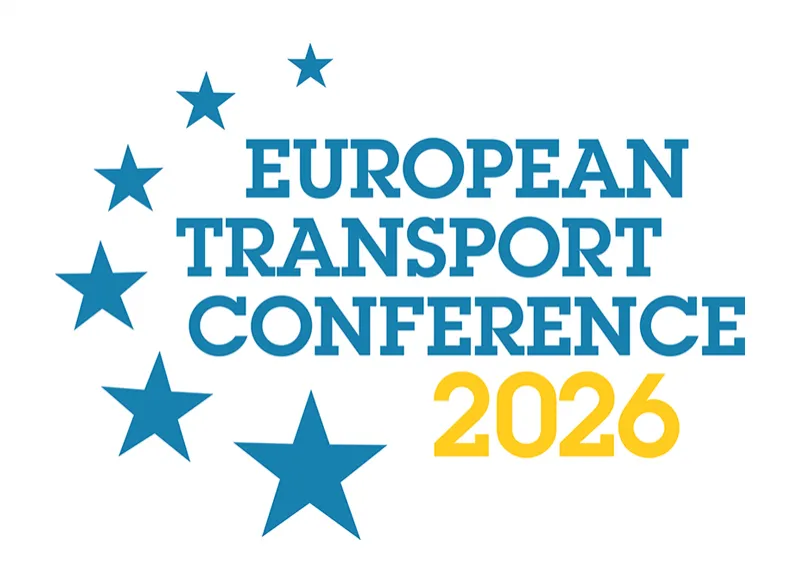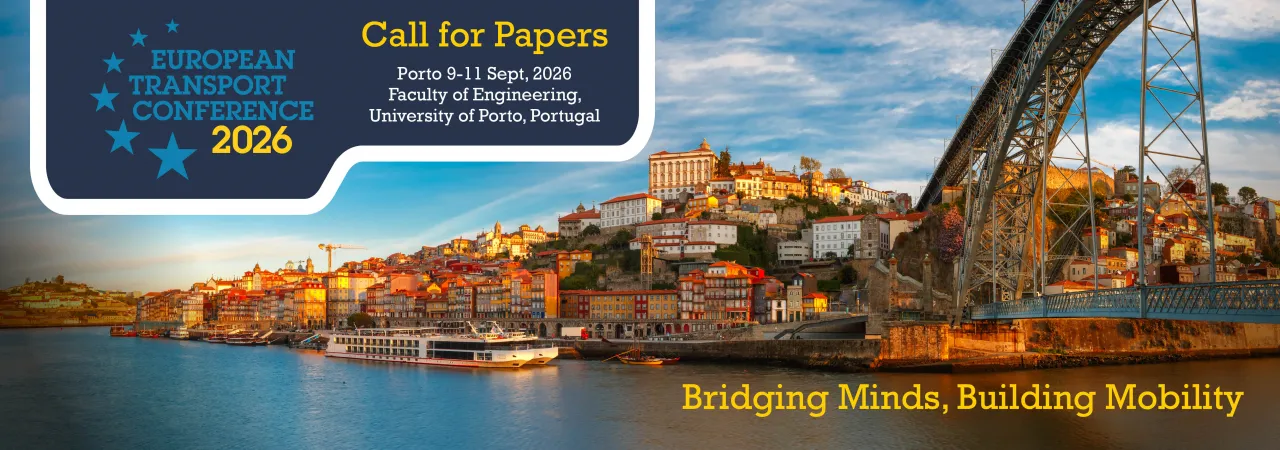Chair: Marie-José Olde Kalter, Ministerie van Infrastructuur en Waterstaat, NL
Mission Statement:
This programme committee provides a home for issues at the leading edge of policy development at the interface between land-use and transport planning. Its focus is on sustainable solutions to land-use and transport problems and how to measure and evaluate their effectiveness and impact.
ETC 2026 - PSLT Call for Papers
This stream provides a home for issues at the leading edge of policy development at the interface between land-use and transport planning. Its focus is on sustainable solutions to land-use and transport problems and how to measure and evaluate their effectiveness and impact.
We invite you to submit abstracts for papers within the broad spectrum of sustainable land-use and transport.
In recent years we have seen a shift in the context in which we operate, due to the growing impact of and attention to climate change and the aftermath of the COVID-19 pandemic. We are also facing an energy crisis and growing inequalities related to wealth, gender, ethnicity or capabilities. All these challenges require us to consider how different the future will need to be, given that “business as usual” may no longer be viable.
For the 2026 conference, we have identified areas of interest that we are especially interested to explore, through knowledge exchange and discussion.
-
Climate change emergency: developing scenarios, roadmaps, milestones and strategies with sufficient public support to achieve (more) ambitious targets for tackling climate change, decarbonising transport and managing travel demand; strategies to make our infrastructure more resilient to climate change; reducing the need to travel; securing the right developments in the right places; and strategies for cities not just countries. Post-COP30 can we start moving faster – with interim targets, not just considering net zero by 2050.
-
Integrated land-use and transport planning: planning processes: financing and decision-making issues; planning for different scale levels; roles of different actors (e.g. developers); using growth to create more sustainable patterns of urban development, less car-dependent cities and monitoring our performance; how to build accessible neighbourhoods in times of a housing crisis; increasing difficulty of transport planners to get public support for policies; route maps for the future and how can modelling and appraisal deal with the new reality; triple access planning – land-use, transport and digital communications: combining transport solutions with spatial and digital solutions.
-
Sustainable mobility under deep uncertainty: becoming more resilient to future uncertainties such as: technological disruptions (such as AVs and AI); pandemics and health threats; material shortages impacting businesses and supply chains; climate change concerns with extreme weather events like hurricanes and floods, causing significant damages to transport infrastructure; geopolitical tensions; increasing cyber threats and cyberattacks on transport systems.
-
Urban Realm and transport: 15/x-minute cities and neighbourhoods; the impact of new technologies and modes (problem solvers or problem creators?); moving towards net zero; road space hierarchy; transit-oriented development; the evolving role of city centres (changing places); capturing transferable lessons from the pioneering towns; cities and regions changing the way people travel; creating more sustainable, liveable and pleasant places; increasing the role of walking and cycling; relationship with culture and heritage.
-
Travel behaviour: influencing travel behaviour through design and policy; nudging, inviting, rewarding and penalising (e.g., ‘carrots and sticks’).
-
Equity in transport: funding, pricing, investments and subsidies: who gains, who does not?; equity between regions; equity issues related to decarbonising transport and digitisation; gender and diversity; the impact of the energy crisis on transport services; affordability issues related to travel cost.
-
Planning for well-being: broadening the aims of transport policies, creating more synergy with other policy ambitions and challenges; planning for people in current and future generations; respecting culture and heritage.
- Communication: lessons learnt in communicating with the public, colleagues, decision makers especially in the cross-silo paradigm we work in.
The committee welcomes debate on integrating transport and land-use planning, supported by compelling research results and examples of good practice. This debate can be nourished by papers on completed projects, as well as works in progress, as valuable insights can be gained in every phase of a project.
We aim to be a forum for professional dialogue. We are happy to offer delegates the opportunity to introduce a specific question, problem or dilemma, on which the speaker and the audience can then reflect together. We are also open to proposals for special sessions. Please indicate in your abstract if you would like to opt for one of these formats or contact the committee chair to discuss.
For all types of papers, the committee emphasises the added value of drawing out the policy relevance.
In 2026, we will have the pleasure to present the author of the best paper in our stream with the Planning for Sustainable Land-Use Award, sponsored by Goudappel. For further information, please consult the ETC website.
Important notice:
Each year we receive more abstracts than can be accommodated in the programme. If your abstract is selected, please be aware that others have been rejected, that the ETC organisation has invested time in devising an attractive and coherent programme and that delegates use this programme to decide to come to the conference.
Before submitting your abstract, please make sure at least one of the authors can attend the conference to present the paper or poster, that finances are available for conference fee, travel and accommodation costs and that you have/will obtain the approval needed (from management or client) to present the work in public at the time of the conference. If your paper is accepted, you will be required to book and pay for the conference by the end of June.
We do understand that sometimes circumstances can force authors to withdraw. If so, you would help us by informing us as soon as possible. Last minute withdrawals or no-shows negatively affect the conference experience of your fellow transport professionals.












